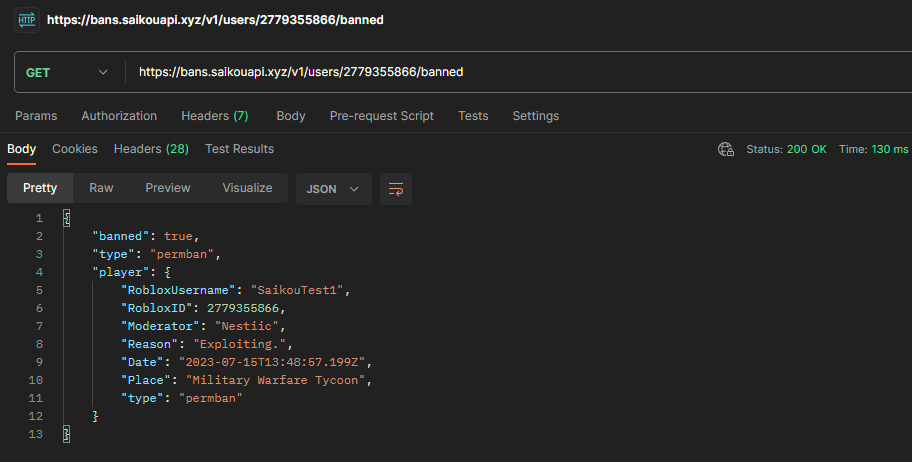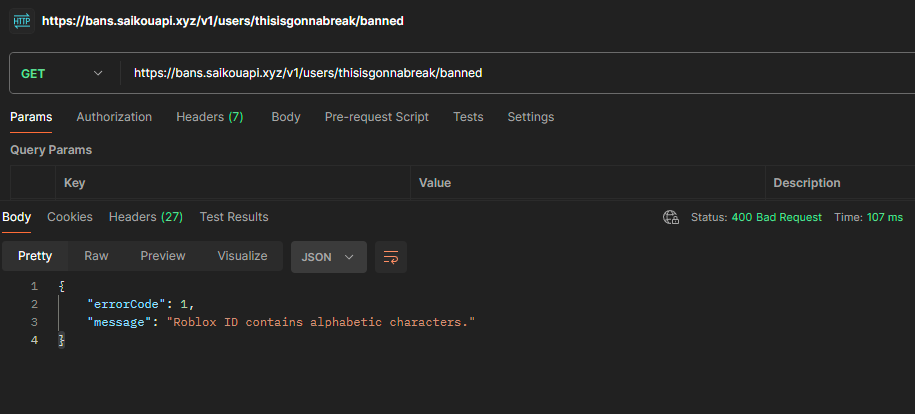Design & Implementation
The API that serves hundreds of players.

SECURITY VALIDATION
API Tokens
As this API performs GET/POST requests that restrict access to a popular game on the Roblox platform, it was vital that security considerations were taken to prevent bad actors from abusing the API. Including a uniquely generated API token that has to be passed through an "X-API-KEY" on all requests was my way of preventing unauthorised access.
JSON RESPONSES
Fetching Data
The Saikou API utilises the MongoDB database to carefully curate specific data regarding banned players. This data is neatly presented in a JSON object with easy-to-reference names so developers can easily refer to the API response. The data uniquely changes based on the parameters and will throw error codes in JSON if no records exist.


ERRONEOUS RESPONSES
Rigorous Validation Checks
Rigorous validation checking was a top priority when developing the API to prevent bad data from entering the database or requests causing unexpected issues in the API. Over 13 validation checks were incorporated, each providing its own dedicated error message and error code in JSON format for easy reference, ensuring the highest level of reliability.